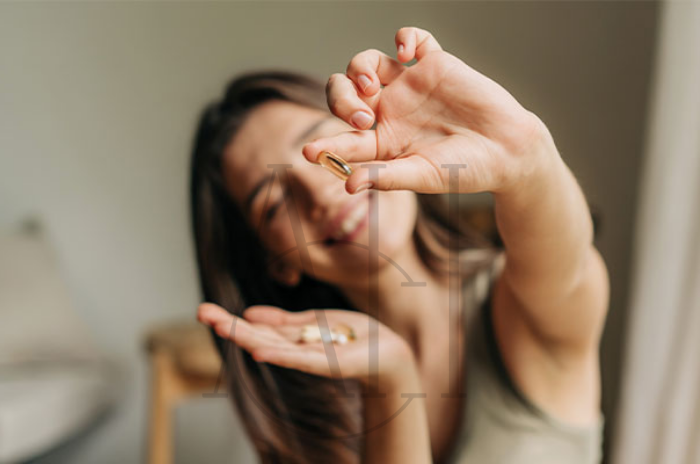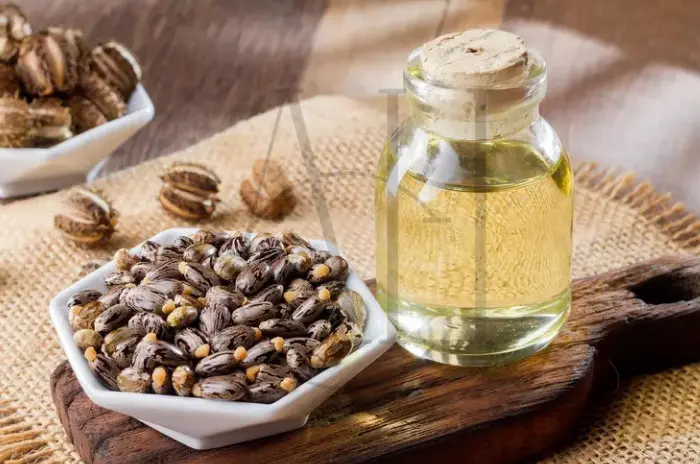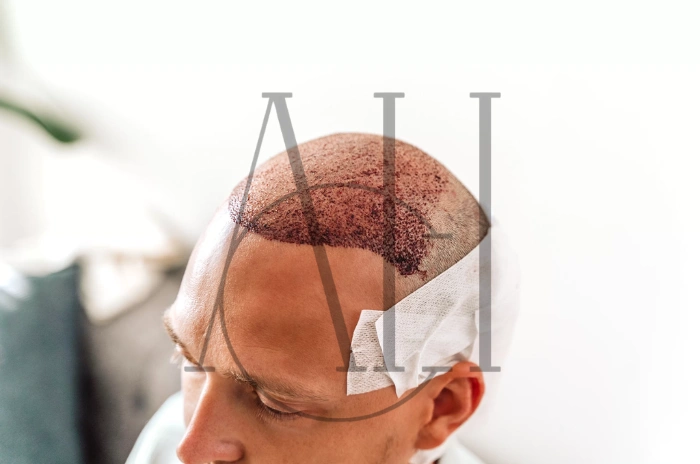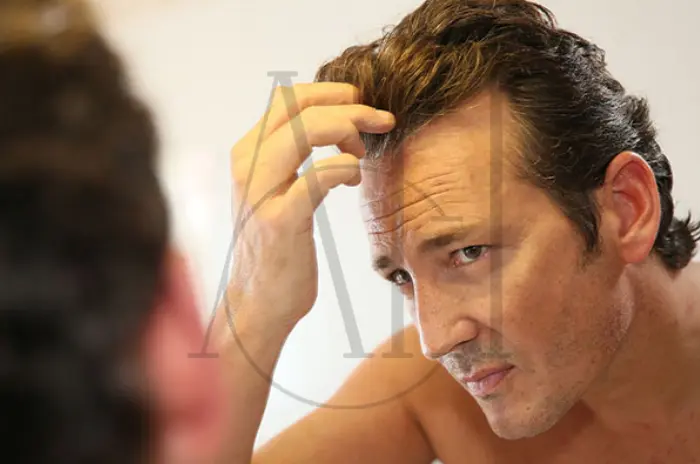Hair loss affects millions of people worldwide, and while many factors contribute to thinning hair, iron deficiency stands out as one of the most overlooked causes. Understanding the connection between iron supplements and hair regrowth can be the key to addressing hair loss naturally and effectively.
Iron deficiency hair loss is more common than many realize, particularly among women of childbearing age. When your body lacks adequate iron stores, your hair follicles may not receive the oxygen and nutrients they need to maintain healthy growth. This leads to hair thinning and, in some cases, noticeable hair loss due to low ferritin levels.
The relationship between iron and hair health isn’t just theoretical – it’s backed by scientific research. Studies show that maintaining optimal ferritin levels can significantly impact hair growth cycles and overall hair health. For those experiencing unexplained hair loss, investigating iron levels might provide the answers they’ve been seeking.
Table of Contents
ToggleCan Iron Supplements Help with Hair Regrowth?
The short answer is yes – iron supplements for hair loss can be highly effective when iron deficiency is the underlying cause. However, understanding how this process works is crucial for setting realistic expectations and achieving the best results.
How Iron Deficiency Causes Hair Loss
Iron plays a fundamental role in producing hemoglobin, the protein that carries oxygen to your body’s tissues, including hair follicles. When iron levels drop, your body prioritizes vital organs, and hair follicles are among the first to experience reduced oxygen supply.
This oxygen deprivation weakens hair follicles, causing them to enter a resting phase prematurely. The result is increased hair shedding and slower hair growth. Anemia and hair thinning often occur together because both stem from inadequate iron levels affecting cellular function.
Hair follicles are particularly sensitive to iron deficiency because they’re among the most rapidly dividing cells in the human body. Without sufficient iron, these cells cannot maintain their normal growth cycle, leading to progressively thinner and weaker hair strands.
The Role of Ferritin in Hair Health
Ferritin serves as your body’s iron storage protein, and its levels are often more indicative of iron status than standard iron tests. For optimal hair health, ferritin levels should typically be above 40-50 ng/mL, though some hair specialists recommend levels closer to 70-80 ng/mL.
When ferritin stores are depleted, your body begins rationing iron to essential functions first. Hair growth, being non-essential for survival, receives lower priority. This explains why ferritin hair loss recovery often takes several months – you need to rebuild iron stores before hair follicles can resume normal function.
Research indicates that women with chronic hair loss often have lower ferritin levels than those without hair issues, even when their standard iron tests appear normal. This highlights the importance of checking ferritin specifically when investigating hair loss due to low ferritin.
Signs You Need Iron for Hair Loss
Recognizing the signs of iron-related hair loss can help you address the problem before it becomes severe. Many people don’t realize that their hair issues stem from iron deficiency because the symptoms can be subtle initially.
Symptoms of Iron Deficiency and Hair Thinning
Low iron hair thinning typically presents with several characteristic signs. You might notice increased hair shedding during washing or brushing, with more hair accumulating on your pillow or in the shower drain. The hair that remains often appears thinner and more fragile than before.
Other symptoms accompanying iron deficiency include fatigue, pale skin, brittle nails, and cold hands and feet. Some people experience restless leg syndrome or unusual cravings for ice or starch. These systemic symptoms often appear alongside hair changes, providing clues about underlying iron status.
Hair texture changes are another important indicator. Iron-deficient individuals often report that their hair feels coarser, drier, or more difficult to style. The hair may also lose its natural shine and appear dull or lifeless.
How to Test Your Ferritin Levels
Getting proper testing is crucial for determining whether iron supplements for hair regrowth are appropriate for your situation. A comprehensive iron panel should include serum ferritin, serum iron, total iron-binding capacity (TIBC), and transferrin saturation.
Ferritin testing requires some preparation for accurate results. Avoid taking iron supplements for at least 12 hours before testing, and try to schedule your appointment for the morning when levels are most stable. Inflammatory conditions can artificially elevate ferritin levels, so discuss any recent illnesses with your healthcare provider.
Many standard reference ranges for ferritin are quite broad, but for hair health purposes, optimal levels are typically higher than the minimum normal range. Working with a healthcare provider familiar with hair loss can help interpret results in the context of your specific symptoms.
What Is the Link Between Iron and Hair Health?
The connection between iron and hair extends beyond simple oxygen transport. Iron participates in numerous enzymatic reactions essential for healthy hair growth, making it one of the most critical nutrients for maintaining a full, healthy head of hair.
Why Your Hair Needs Iron to Grow
Hair follicles are among the most metabolically active tissues in your body, requiring constant nutrient supply for optimal function. Iron supplements hair regrowth works because iron supports the cellular processes that drive hair formation and growth.
Iron is essential for DNA synthesis, which occurs rapidly in hair follicle cells during the active growth phase. Without adequate iron, these cells cannot divide properly, leading to shortened growth phases and premature hair shedding.
The mineral also supports collagen production, which forms part of the hair follicle structure. Collagen provides strength and flexibility to hair strands, and iron deficiency can result in weaker, more breakage-prone hair even when growth continues.
The Role of Ferritin in Hair Follicles
Ferritin doesn’t just store iron – it also helps regulate iron availability within individual cells, including hair follicles. Hair follicle cells contain ferritin receptors that allow them to access stored iron when needed for growth processes.
During periods of iron deficiency, hair follicles may enter a protective mode, slowing growth to conserve available iron for more critical functions. This explains why addressing iron deficiency often leads to improved hair growth rates and thickness over time.
Research has shown that hair follicle ferritin levels correlate with hair growth rates and hair shaft diameter. Higher ferritin availability within follicles supports longer growth phases and stronger, thicker hair strands.
How Iron Affects the Hair Growth Cycle
Understanding the hair growth cycle helps explain why iron pills for hair regrowth take time to show visible results. Hair grows in three distinct phases, and iron deficiency can disrupt each stage in different ways.
The Role of Ferritin in Hair Follicle Function
The anagen phase, when hair actively grows, requires the highest iron availability. During this phase, which normally lasts 2-7 years, hair follicle cells divide rapidly and produce the proteins that form hair strands. Adequate ferritin levels ensure these processes can continue uninterrupted.
Iron deficiency often shortens the anagen phase, causing hairs to enter the resting (telogen) phase prematurely. This results in more hairs shedding simultaneously and fewer hairs in active growth, creating the appearance of overall thinning.
The transition (catagen) phase also relies on proper iron availability for the cellular changes that prepare follicles for the resting period. Disrupted transitions can lead to irregular shedding patterns and unpredictable hair growth.
How Iron Supports Healthy Hair Growth
Iron supplements hair growth success depends on restoring normal follicle function across all growth phases. As iron levels improve, follicles can gradually return to longer anagen phases and more synchronized growth cycles.
The process isn’t immediate because existing hairs may still be in shortened cycles initiated during iron-deficient periods. It typically takes 3-6 months to see initial improvements, with more significant changes occurring over 6-12 months of consistent iron supplementation.
Adequate iron also supports the production of keratin, the primary protein in hair strands. Stronger keratin structure means less breakage and better hair quality, contributing to the appearance of thicker, healthier hair.
Who Might Need Iron Supplements for Hair Health?
While iron deficiency can affect anyone, certain groups are at higher risk for iron-related hair loss. Understanding these risk factors can help determine whether iron supplementation might be beneficial for your hair health.
Signs of Iron Deficiency Related to Hair
Women of reproductive age represent the largest group at risk for iron deficiency hair loss. Menstrual blood loss, pregnancy, and breastfeeding all increase iron demands, potentially leading to deficiency if dietary intake doesn’t match requirements.
Vegetarians and vegans may also experience iron-related hair issues because plant-based iron (non-heme iron) is less easily absorbed than iron from animal sources. This doesn’t mean plant-based diets cause hair loss, but extra attention to iron intake and absorption may be necessary.
People with digestive disorders like celiac disease, inflammatory bowel disease, or gastric bypass surgery may have impaired iron absorption, increasing their risk of deficiency despite adequate dietary intake.
When to Get Your Iron Levels Checked
Consider iron testing if you experience unexplained hair loss, especially if accompanied by fatigue, pale skin, or other signs of iron deficiency. How to grow hair faster with iron starts with determining whether deficiency exists and to what extent.
Athletes, particularly endurance athletes, may benefit from iron testing due to increased iron losses through sweat and potential dietary restrictions. Heavy menstrual periods, frequent blood donation, or recent major surgery also warrant iron evaluation.
If you’ve tried other hair loss treatments without success, iron testing provides valuable information that might explain your lack of response to conventional therapies.
Risk Groups for Iron-Related Hair Loss
Elderly individuals may experience iron deficiency due to decreased dietary intake, medication interactions, or underlying health conditions. Age-related changes in stomach acid production can also reduce iron absorption efficiency.
Teenagers, especially girls, face increased iron needs during growth spurts combined with the onset of menstruation. This combination can quickly deplete iron stores if intake doesn’t increase accordingly.
People with chronic kidney disease, heart failure, or other conditions requiring blood draws or causing internal bleeding may develop iron deficiency over time, potentially affecting hair health.
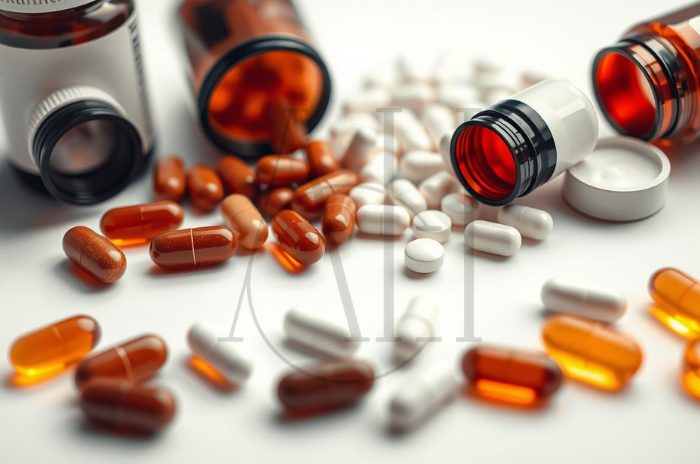
Choosing the Right Iron Supplement for Hair Regrowth
Selecting an appropriate iron supplement involves considering absorption, tolerability, and your specific needs. Not all iron supplements for hair loss are created equal, and the right choice can make a significant difference in both effectiveness and comfort.
Types of Iron Supplements Available
| Iron Supplement Type | Elemental Iron Content | Absorption Rate | Tolerance Level | Best For |
|---|---|---|---|---|
| Ferrous Sulfate | High (20% elemental iron) | High | Moderate (may cause stomach upset) | Cost-effective iron supplements for hair loss |
| Ferrous Gluconate | Moderate (12% elemental iron) | Good | Better tolerance | People with sensitive stomachs |
| Ferrous Fumarate | High (33% elemental iron) | High | Good | Those needing higher iron pills for hair regrowth |
| Chelated Iron | Varies | Excellent | Best tolerance | Best iron supplement for hair growth for sensitive individuals |
| Carbonyl Iron | Variable | Slower, steady | Excellent | People prone to side effects of iron supplements for hair |
Ferrous sulfate is the most common and cost-effective iron supplement, providing high elemental iron content. However, it can cause digestive upset in some people, particularly when taken on an empty stomach.
Ferrous gluconate and ferrous fumarate offer alternatives with potentially fewer side effects while still providing good bioavailability. These forms may be better tolerated by people with sensitive stomachs.
Chelated iron supplements, where iron is bound to amino acids, often have improved absorption and reduced gastrointestinal side effects. While more expensive, they may be worth considering for those who struggle with traditional iron supplements.
How to Improve Iron Absorption
Taking iron supplements with vitamin C significantly enhances absorption. A glass of orange juice or a vitamin C supplement taken with your iron pills for hair regrowth can increase uptake by up to 300%.
Avoid taking iron with calcium supplements, antacids, or caffeinated beverages, as these can inhibit absorption. Space these items at least two hours apart from your iron supplement for optimal uptake.
Taking iron on an empty stomach maximizes absorption, but if this causes nausea, taking it with a small amount of food is better than skipping doses. Consistency matters more than perfect timing.
Dosage Considerations and Medical Advice
Best iron supplement for hair growth dosing varies based on the severity of deficiency and individual factors. Most healthcare providers recommend 18-25 mg of elemental iron daily for mild deficiency, with higher doses for more severe cases.
Never self-prescribe high-dose iron supplements without medical supervision. Too much iron can be toxic and may interfere with the absorption of other essential minerals like zinc and copper.
Regular monitoring during supplementation helps ensure you’re achieving target ferritin levels without overshooting into potentially harmful ranges. Most people need 3-6 months of consistent supplementation to meaningfully improve iron stores.
How to Use Iron for Hair Regrowth
Maximizing the benefits of iron supplements for hair regrowth requires understanding proper usage, timing, and complementary strategies. The way you take iron supplements can significantly impact their effectiveness for hair health.
Recommended Dosage of Iron Supplements
Starting doses for iron deficiency typically range from 15-30 mg of elemental iron daily, though some individuals may require higher amounts under medical supervision. Iron pills for hair growth before and after results often depend on maintaining consistent daily intake rather than sporadic high doses.
Dividing doses throughout the day can improve tolerance and absorption. Taking 10-15 mg with breakfast and another 10-15 mg with dinner may be more effective than a single large dose, especially for those prone to stomach upset.
Pregnant women or individuals with severe deficiency may need 60-120 mg daily, but such high doses should always be medically supervised due to potential side effects of iron supplements for hair.
Iron-Rich Foods to Support Hair Health
Combining supplements with iron-rich foods for hair health provides a comprehensive approach to addressing deficiency. Red meat, poultry, and fish offer highly absorbable heme iron that’s easily utilized by the body.
Plant-based iron sources include leafy greens, beans, lentils, quinoa, and fortified cereals. While less easily absorbed than heme iron, these foods become more bioavailable when consumed with vitamin C-rich foods like tomatoes, bell peppers, or citrus fruits.
Cooking in cast iron pans can actually increase the iron content of foods, particularly acidic dishes like tomato-based sauces. This traditional method provides a small but meaningful boost to iron intake.
When to Consider Iron Infusions
Severe iron deficiency or malabsorption issues may require intravenous iron infusions rather than oral supplements. These medical procedures can rapidly restore iron levels when oral supplementation fails or causes intolerable side effects.
Infusions are particularly useful for people with inflammatory bowel disease, celiac disease, or other conditions that impair iron absorption. The rapid improvement in iron status can lead to faster hair regrowth responses than oral supplements alone.
However, infusions require medical supervision and carry different risks than oral supplements. They’re typically reserved for cases where oral iron isn’t effective or practical.

Iron Supplements for Hair Regrowth
Understanding when and how to use iron supplements specifically for hair regrowth helps set realistic expectations and optimize outcomes. The relationship between supplementation and hair improvement follows predictable patterns.
When to Consider Taking Iron Supplements
Does iron help hair grow depends largely on whether iron deficiency is contributing to your hair loss. If blood tests confirm low ferritin levels (typically below 30-40 ng/mL), iron supplementation is likely to benefit hair health.
Even individuals with ferritin levels in the lower-normal range (40-70 ng/mL) may experience hair improvements with supplementation, particularly if they have other risk factors for iron deficiency.
Consider iron supplementation if you’ve experienced increased hair shedding coinciding with periods of high iron demand, such as pregnancy, heavy menstrual periods, or restrictive dieting.
Types of Iron Supplements Available
Immediate-release iron supplements provide rapid iron delivery but may cause more gastrointestinal side effects. These work well for people who can tolerate standard formulations and want faster results.
Slow-release or extended-release formulations reduce stomach upset by releasing iron gradually throughout the day. While potentially gentler, they may have slightly lower absorption rates than immediate-release versions.
Liquid iron supplements offer an alternative for people who have difficulty swallowing pills or need precise dosing adjustments. Many liquid formulations include vitamin C and other absorption enhancers.
How Long Does It Take for Iron to Work for Hair?
Iron supplements hair growth results follow a predictable timeline. Initial improvements in energy and overall well-being often occur within 2-4 weeks of starting supplementation, before hair changes become apparent.
Hair shedding may initially increase during the first month as iron levels begin to normalize. This temporary increase occurs because improved iron availability allows follicles to complete disrupted growth cycles.
Visible hair improvements typically begin around 3-4 months, with more significant changes occurring between 6-12 months of consistent supplementation. Hair regrowth follows normal growth cycles, so patience is essential.
Are Iron Supplements Enough to Reverse Hair Loss?
While iron supplementation can be highly effective for iron-deficiency related hair loss, it may not address all types of hair loss. Androgenetic alopecia (male or female pattern baldness) requires different treatments, though correcting iron deficiency may still provide some benefit.
Combining iron supplementation with other evidence-based hair loss treatments often provides superior results to any single intervention. This might include topical minoxidil, hair transplant procedures, or other medical treatments.
Iron supplements for hair regrowth work best as part of a comprehensive approach that addresses all potential contributing factors to hair loss, including hormones, stress, and other nutritional deficiencies.
Can Iron Supplements Alone Regrow Hair?
While iron plays a crucial role in hair health, the question of whether iron supplements alone can restore hair growth depends on multiple factors, including the underlying cause of hair loss and individual health status.
Importance of a Holistic Approach
Iron supplements hair regrowth success is often enhanced when combined with attention to overall health and nutrition. Hair follicles require multiple nutrients beyond iron, including protein, zinc, biotin, and vitamins D and B12.
Stress management, adequate sleep, and regular exercise all support healthy hair growth by improving circulation and reducing inflammation. These lifestyle factors can amplify the benefits of iron supplementation.
Addressing underlying health conditions that contribute to hair loss, such as thyroid disorders or autoimmune conditions, is essential for achieving optimal results from iron supplementation.
Nutrients That Work With Iron
Vitamin C not only enhances iron absorption but also supports collagen production, which is important for hair structure. Taking 100-200 mg of vitamin C with iron supplements maximizes uptake and provides additional hair benefits.
Zinc works synergistically with iron in many enzymatic processes related to hair growth. However, high-dose iron can interfere with zinc absorption, so maintaining proper balance is important.
B-complex vitamins, particularly B12 and folate, support the rapid cell division that occurs in hair follicles. Deficiencies in these vitamins can limit the effectiveness of iron supplementation for hair regrowth.
Iron vs. Other Hair Growth Supplements
Comparing different approaches to hair growth supplementation helps determine the most effective strategy for individual needs. Understanding how iron stacks up against other popular hair growth nutrients provides valuable guidance.
Iron or Biotin: Which Works Better for Hair?
The iron vs. biotin for hair growth debate often misses the point that these nutrients address different aspects of hair health. Iron supports the cellular processes and oxygen delivery essential for hair growth, while biotin primarily affects hair strength and thickness.
For people with iron deficiency, iron supplementation will likely provide more dramatic improvements than biotin alone. However, individuals with adequate iron levels may see better results from biotin or other B-complex vitamins.
Many successful hair regrowth protocols combine iron with biotin and other nutrients, recognizing that hair health requires multiple nutritional inputs for optimal results.
Can You Take Iron with Other Hair Vitamins?
Iron can be safely combined with most hair growth supplements, but timing and dosing matter. Take iron supplements separately from zinc and calcium to avoid absorption interference.
Vitamin D, omega-3 fatty acids, and most B-vitamins complement iron supplementation without interaction concerns. These combinations often provide synergistic benefits for overall hair health.
Some hair growth formulations include iron along with other nutrients, but these may not provide therapeutic doses for individuals with significant iron deficiency. Separate iron supplementation may be necessary.
Other Ways to Boost Iron for Healthy Hair
Beyond supplementation, several strategies can help optimize iron status naturally. These approaches work well alone or in combination with iron pills for hair regrowth for comprehensive hair health support.
Eating Iron-Rich Foods
Incorporating iron-rich foods for hair health into your daily diet provides a foundation for maintaining adequate iron levels. Heme iron from animal sources offers the highest bioavailability and includes red meat, poultry, fish, and organ meats.
Plant-based iron sources require more strategic consumption but can effectively support iron status when properly combined. Legumes, dark leafy greens, quinoa, and fortified cereals provide substantial iron content.
Pairing plant-based iron with vitamin C-rich foods dramatically improves absorption. Adding tomatoes to spinach, enjoying strawberries with iron-fortified cereal, or drinking orange juice with meals enhances iron uptake.
Enhancing Iron Absorption Naturally
Cooking methods can significantly impact iron availability from foods. Using cast iron cookware, particularly for acidic foods, can increase iron content by 15-20%.
Avoiding iron inhibitors around meal times helps maximize absorption from food sources. Coffee, tea, milk, and whole grains can reduce iron uptake when consumed simultaneously with iron-rich foods.
Fermented foods like sauerkraut, kimchi, and sourdough bread may enhance iron absorption through their effect on gut health and mineral availability.
Who Should Avoid Iron Supplements?
Individuals with hemochromatosis, a genetic condition causing iron overload, should never take iron supplements without specific medical indication. Regular monitoring is essential for anyone with this condition.
Men and postmenopausal women generally need less supplemental iron than menstruating women and should have iron levels checked before beginning supplementation to avoid excess intake.
People with certain infections may need to avoid iron supplements, as iron can support bacterial growth. Discuss supplementation with healthcare providers if you have active infections or compromised immune function.
FAQ : How Iron Supplements Support Hair Regrowth Naturally
Can iron supplements genuinely help with hair regrowth, and what’s the connection?
Yes, iron supplements for hair loss can effectively support hair regrowth when iron deficiency is contributing to hair loss, as iron provides essential oxygen and nutrients to hair follicles for healthy growth.
What is ferritin, and why is its level important for hair health?
Ferritin is your body’s iron storage protein, and adequate ferritin levels (typically above 50-70 ng/mL) are crucial for hair health because they ensure hair follicles have sufficient iron reserves for continuous growth cycles.
What are the signs that low iron might be causing my hair loss?
Signs of iron deficiency hair loss include increased hair shedding, thinning hair, changes in hair texture, along with symptoms like fatigue, pale skin, brittle nails, and cold hands and feet.
How do I get my iron levels checked for hair loss, and what’s considered optimal?
A comprehensive iron panel including ferritin, serum iron, TIBC, and transferrin saturation should be ordered by your healthcare provider, with optimal ferritin levels for hair health typically above 50-70 ng/mL.
How long does it take to see hair regrowth after starting iron supplements?
Iron pills for hair growth before and after results typically begin showing around 3-4 months of consistent supplementation, with more significant improvements occurring between 6-12 months.
What type of iron supplement is best for hair regrowth, and how can I maximize absorption?
Ferrous sulfate or chelated iron forms work well for hair regrowth, and absorption is maximized by taking supplements with vitamin C, on an empty stomach when possible, and away from calcium or caffeine.
Can iron supplements alone cure all types of hair loss, or are other treatments needed?
While iron supplements hair regrowth is effective for iron-deficiency related hair loss, other types like androgenetic alopecia may require additional treatments such as minoxidil or hair transplant procedures.
Are there any side effects or risks associated with taking iron supplements for hair?
Side effects of iron supplements for hair include digestive upset, constipation, and nausea, while excessive intake can cause iron overload, so medical supervision and regular monitoring are recommended.

